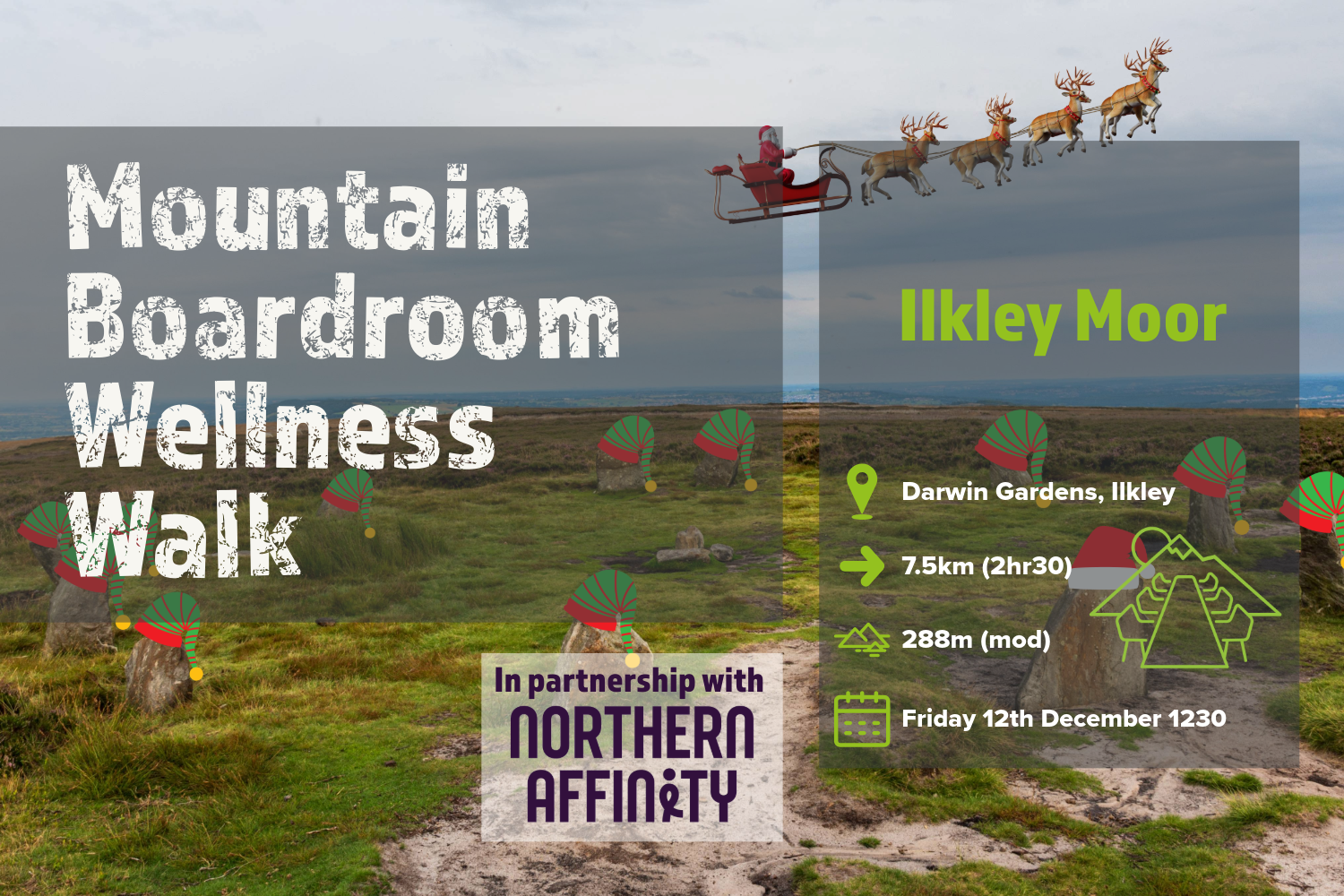7 reasons why smart leaders need to get out into nature
Green is the new black.
When our environments shrunk at the start of the Covid crisis, and the entire world's population were trapped inside their caves, the allure of the outdoors became stronger than ever. With only the miniscule freedom of being able to venture outside once for exercise each day, the break that being outdoors gave us became a much needed relief - a chance to clear the mind, reset, and re-steel ourselves for returning to our prisons.
For most people, the association between walking outside and improved mental health became starkly evident. However in the past few years, scientists and doctors have been slowly uncovering and quantifying the benefits that the outdoors has on people’s health.
Although Mountain Boardroom uses the power of nature to inspire business leaders and teams, ultimately it all starts with the individual.
Whether it is creating a quiet, safe, yet inspiring space for leaders to clear their minds and think of the big picture.
Or freeing teams from Teams (and Zoom), the confines and isolation of the home office, and instead getting people together, In Real Life, where they can relax and... breathe.
So here are 7 reasons why you should log off, put on the walking boots, dress for the weather and head for the hills.
1. It’s actually really good exercise
Okay, let’s start with the obvious one.
A walk in the hills can feel like a strenuous effort at times (particularly on the uphill bits!) but it's not a race, and you can go at your own pace. Still, a day spent on the fells can see you burn around 1500 calories, while constantly working your leg muscles, giving your heart a moderate workout, and your lungs chance to take in that pure air. Walking has also been shown to lower blood pressure in the long-term.
These effects cumulatively work together to reduce the likelihood of chronic illnesses such as heart disease, Type 2 diabetes, asthma and stroke.
2. Your sleep improves
Getting a good night’s sleep is one of the main things you can do to improve your health, concentration and effectiveness. Just a short, lunchtime walk, somewhere green has been proven to improve sleep the following night. Imagine what a full day on the fells would do?
3. It helps to reduce stress
Well 'Duh' I hear you say. But I'm not just talking about the wave of relief as your body and mind unwinds on a walk in nature.
It's also the longer-term benefits. People who spend more time in natural environments, rather than indoors, have been shown to have lower levels of the stress hormone, cortisol.
4. It helps with depression
This is another benefit that has been getting a lot of attention recently. Walking has been shown to be "an effective intervention for depression " according to a study by the University of Stirling.
In a time of increasing isolation from home working, walking with a friend, colleague or group can amplify this effect.
5. It revitalises the brain and improves concentration
Too much stuff to do? Feeling overwhelmed? Too many distractions?
Our brains' effectiveness and ability to concentrate deteriorates rapidly with so many things competing with for our attention at once.
The result: Brain fog, an inability to focus or concentrate, forgetfulness... Generally walking around the home or office like an overloaded zombie.
A study showed that transitioning from a busy, modern environment, to a green natural space resulted in lower frustration, lower levels of active brain engagement, and the brain entered a more meditative state.
Although being outdoors and in nature still engages the brain, it does it in a very different way to the distractions of the modern world. The sights and sounds of nature create a more effortless type of engagement called 'involuntary attention', which, according to one of the leaders of the study, "hold our attention, while at the same time allowing for scope and reflection"
Another study showed that being in nature reduced rumination, clearing the mind to focus on what it could achieve, rather than worrying about what has already passed.
6. It MASSIVELY enhances creativity
One of the most fascinating discoveries I've made during the founding of Mountain Boardroom is just how effective a walk has been to rip up conventional thinking, and open the mind up to new ideas.
Rather than this being down to random chance, a study has shown that there is a genuine mechanism at play here.
Walking has been shown to improve 'divergent thought' - this is a process in the brain that creates new ideas by considering several different solutions, rather than focussing on a single one.
Secondly, walking frees us from the decisions we need to make on a daily basis. Sure, there may be parts of the journey where we need to decide which route to take, how to scale a crag, or how to overcome an obstacle, but by large, we are following a path or route, one step at a time.
Deactivating the part of your brain that makes decisions is CRUCIAL for allowing the brain to be innovative.
7. You get a satisfying sense of achievement
Some peaks can be more daunting than others.
What is more mentally challenging - a large looming mountain, where you can see the long route to the top, or a climb where you're faced with a seemingly never-ending hill, with the top being out of sight until the last minute?
Either way, the rush of endorphins when you reach the top, the exhilaration felt from completing the climb, makes you feel like you can do anything.


